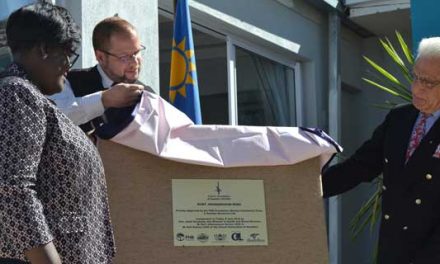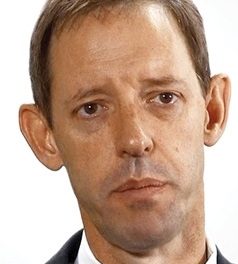
U.S. government donates 16 vehicles to health ministry to support HIV mentorship programme

The United States government donated 16 vehicles to the Ministry of Health and Social Services this week to support its HIV mentorship programme, enabling clinical mentors in all 14 regions countrywide to visit clinics more regularly and efficiently.
The Centers for Disease Control and Prevention (CDC) provided the latest batch of vehicles with funding from the U.S. President’s Emergency Plan for AIDS Relief (PEPFAR).
“The mentorship programme was introduced in 2015 as part of the acceleration plan to reach HIV epidemic control by 2030, in line with the UNAIDS Fast Track Targets of 90-90-90. Clinical mentors recruited with funding from the CDC support healthcare workers involved in the national HIV response. They are experienced clinician-trainers and carry out activities like onsite training and consultation on complex cases, support and enhance high-level problem-solving, diagnostic, and decision-making skills, lead case discussions, and address issues of quality assurance and continuing education,” noted Dr. Kalumbi Shangula, Minister of Health and Social Services.
Dr. Shangula stated that in November 2016, the first fleet of 11 mentorship vehicles was handed over to various regions through CDC-Namibia, enabling HIV services to be carried out in communities in Oshakati, Outapi, Tsandi, Okahao, Engela, Okongo, Eenhana, Katima Mulilo, Rundu, and Windhoek. In February 2020, the programme expanded to Omaheke, Kunene, and Hardap regions.
He continued: “Following this expansion, the U.S. government officially handed over six additional mentorship vehicles at an event in Swakopmund.”
Furthermore, he stated that his ministry acknowledges the “massive decentralization of HIV services” in these regions through vehicle donations based on disease burden as well as HIV infection prevalence, caseloads, and mortality rates.
According to him, the mentorship vehicles serve as symbols of connections and paths, connecting experience and aspirations, knowledge and action. He said that they extend beyond boardrooms and conferences, ensuring quality care and clinical management of HIV in hard-to-reach areas, noting that mentorship is not limited to boardrooms or conferences but extends to every corner of the community, promoting shared experiences and knowledge.
“To date, the country has achieved 95-97-94 on the UNAIDS cascade, in which clinical mentors have played a significant role in this achievement, and through the mentorship programme, the ministry has decentralized the HIV service delivery from 38% to 98% at the primary health care clinics by 2017,” the minister said at the official handover ceremony on Monday.
The minister also pointed out that the U.S. government’s support through CDC Namibia, including its investment in mentorship, is crucial for driving positive change and fostering leadership in the community. He said the ministry successfully implemented the World Health Organization’s “Treat All” guidelines in 2016, initiating most HIV patients on antiretroviral treatment, and added that in 2018, Nevirapine “was phased out.”
U.S. Ambassador to Namibia Randy Berry, who also spoke at the event, said that the impact of the clinical and nurse mentors is “radically reduced if they do not have transport” to make site visits.
“The U.S. government is a committed partner with the Ministry of Health and Social Services, and over the past 18 years, through funding from PEPFAR, we have provided more than USD $1.5 billion to strengthen Namibia’s HIV and TB response. Each year, we go through a co-planning process with the government and other stakeholders to ensure that our investments meet the holistic needs of the country; while some of the funding is used to provide expert technical assistance to strengthen the quality of care, the funding is also used to provide practical assistance, such as the provision of vehicles,” Berry said.
“The U.S. government has taken action to help achieve a reality that is vitally needed. We cannot ignore the problems of time and distance; these are roads that must be traveled, and we are proud to be supporting the Ministry of Health and Social Services to travel safely and as frequently as the needs of the patients and communities require.”
Dr. Leonard Bikinesi, Chief Clinical Mentor at the Ministry of Health and Social Services, stated that the Namibian mentorship programme has also been recognized as a best practice by other African countries, noting that teams from Zambia, Nigeria, Botswana, and Eswatini have either reached out or visited the country to learn more about how to adapt the programme in their respective countries. Zambia, Nigeria, and Botswana have successfully done so thus far, he noted.












































